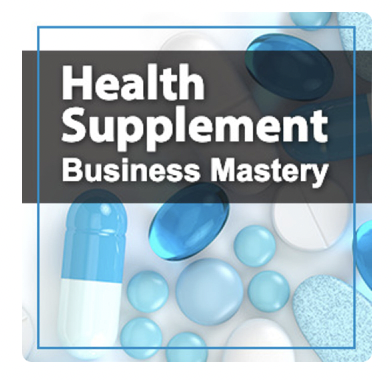
The worlds of functional beverages and beauty supplements are colliding.
Are the days when consumers buy a single-purpose supplement gone?
Today’s health-conscious buyers want products that integrate multiple benefits.
Hybrid supplement products like mushroom coffee and collagen-infused beverages are reshaping consumer expectations.
The multi-functional supplement market, currently valued at $4.2 billion, is projected to double by 2027, with functional beverages leading the growth.
However, traditional supplement marketing approaches are failing to capture this opportunity.
Conventional category positioning is being turned on it’s head.
The key to successful positioning lies in understanding how to position these hybrid products at the intersection of multiple wellness categories. While maintaining a clear, compelling value proposition.
Here’s what really works in marketing these multi-funtional products…
Mushroom Coffee and New Health Drink Categories
The emergence of mushroom coffee is a perfect example of a hybrid supplement category. It shows how two things can work better together.
Four Sigmatic’s mushroom coffee is a perfect example of an entirely new category. When they started selling mushroom coffee in 2012. They didn’t just make a new drink. They made a whole new type of product. They approached it from a two-sided market perspective.
A two-sided market has two distinct groups of buyers. They often have different buying motivations. And they typically buy different solutions or alternatives to solve the same problem.
So how did Sigmatic bridge the gap?
They got coffee lovers to try mushroom supplements. And they also got health buyers to try coffee.
By bridging the gap between daily ritual and functional supplements, they achieved what many thought impossible.
Convincing coffee purists to embrace adaptogens and wellness enthusiasts to reconsider caffeine.
The Growing Market
The numbers tell a compelling story.
The functional beverage market is experiencing explosive growth. They went up by a 40% year-over-year since it’s inception. Now the category is worth $16.8 billion globally.
Meanwhile, the collagen supplement sector has surpassed expectations.
The Collagen supplement category is growing at 12% annually. And projected to hit $8.5 billion in 2025.
What’s driving this growth?
Consumer behavior data reveals that 73% of people who take supplements want products that do more than one thing.
Here’s the key distinction. Because most supplement blends and herbal products have always done more than one thing. The distinction and opportunity in today’s marketing is all about positioning.
New Ways to Sell Multi-Functional Supplements
Traditional single-category marketing approaches fail these hybrid products because they miss the fundamental shift in consumer mindset.
Old ways of selling don’t work for these new products. People don’t think “either this OR that” anymore. They want “this AND that.”
When companies only talk about one benefit, they miss what makes these products special. Customers know that being healthy means many things working together.
Companies need better ways to tell people about all the good things their products can do.
When marketing focuses solely on either the functional beverage aspect or the supplement benefits, it misses the powerful synergy that makes these products unique.
This evolution demands a more sophisticated marketing approach.
One that effectively communicates multiple value propositions while maintaining a clear, compelling brand narrative.
This ties back to my unique perspective on marketing.
Supplement buyers make two purchases at once. And most brands only speak to one.
This echoes the multi-functional desire we’re seeing in the market right now.
But it goes deeper.
There’s an invisible conversation happening in your supplement buyers’ minds (and you’re not part of it.)
What makes buying supplements unique is that they sit right in the middle of a functional and an emotional need.
Products on the functional side are those that solve a functional problem.
For which supplement buyers are starting to look for supplements to solve multiple functional problems.
On the other hand are products that fall on the complete opposite end, the emotional side.
This is where two of the four supplement buying forces come into play. That is the forces of desire and hope. Both of which are core emotions.
How This Works in Real Life
In 2012, Four Sigmatic made a new kind of drink. It wasn’t just coffee. It wasn’t just a supplement. It was both.
Let’s look at desire and hope a bit deeper and how it fits into the positioning of a new category.
First, we have the emotion of desire.
Desire: This is what pushes people to want a change. Maybe they want more energy or to feel more focused. That’s the core desire.
Next, we have the emotion of hope.
Hope: This gives energy to their desire. It’s the feeling that this time, this supplement might really work. Four Sigmatic gave people hope that mushroom coffee could make them feel better while still enjoying coffee.
This worked because it tapped into desire and hope:
- People desired better health without giving up coffee
- They hoped mushrooms could add health benefits
- It fits with people’s belief that natural is better
What’s Happening Right Now That’s Just Like This?
The intersection of Eastern wisdom and Western wellness presents a unique opportunity for hybrid supplement brands.
In Asia, where traditional Chinese medicine (TCM) has long embraced functional ingredients like mushrooms and herbs, the market for beauty-focused supplements exceeds $25 billion.
Products that mix Eastern wisdom and Western health ideas have a big chance to do well. These traditional remedies are being used in new ways through a modern wellness lens.
The Turmeric Example
We saw this before when turmeric was all the rage. The turmeric market was kickstarted after modern research and technology stepped in.
Scientific research isolated curcumin as the active compound in turmeric responsible for its anti-inflammatory effects. This has led to the development of standardized curcumin extracts with precisely measured doses, something traditional preparations couldn’t achieve.
Second, modern supplement technology has addressed bioavailability issues to enhance absorption.
As a result, this ingredient has since been incorporated into entirely new product categories that didn’t exist in traditional contexts.
You can now find turmeric in:
- Specialized turmeric lattes at coffee shops (a modern twist on golden milk)
- Post-workout recovery supplements for athletes
- Beauty products claiming to reduce skin inflammation and brighten complexion
- Functional gummies with added vitamins and adaptogens
- Cold-pressed juice blends with other “superfoods”
The Collagen Example
Collagen is another great example.
This has been used in traditional practices for centuries, particularly in East Asian cultures.
While Asian markets have long valued collagen for its beauty benefits, with a 60% market penetration in Japan.
While Western consumers are just discovering its potential for both beauty and performance enhancement.
Today, collagen has undergone several significant transformations:
First, modern processing technologies have made collagen more accessible and convenient. Instead of spending hours boiling bones to make broth, consumers can now purchase hydrolyzed collagen peptides that dissolve instantly in beverages. This technological advancement has removed preparation barriers that existed in traditional contexts.
Second, modern science has identified specific types of collagen (Types I, II, III, etc.) and their relationships to different body tissues. This has led to targeted formulations.
Type I for skin and hair, Type II for joints. Something traditional remedies couldn’t specifically address.
Third, collagen has expanded far beyond its traditional beauty applications.
While East Asian markets have long valued collagen for skin benefits.
Western wellness brands have reframed collagen for multiple purposes:
- Performance-focused collagen supplements with added ingredients like vitamin C and hyaluronic acid targeting joint recovery for athletes
- Collagen protein bars positioning the ingredient as a clean protein source rather than just a beauty supplement
- Collagen coffees and matcha blends that combine traditional protein with modern functional beverages
- Collagen gummies with added biotin and other beauty-supporting nutrients
Fourth, delivery methods have dramatically evolved. Traditional collagen consumption came through food sources, but modern wellness offers:
- Flavored collagen powders designed to mix into smoothies
- Ready-to-drink collagen beverages in convenient bottles
- Collagen capsules for those who prefer supplements without taste
- Collagen-infused snacks like protein bars and cookies
Finally, the scientific understanding and marketing language have shifted.
Traditional wisdom held that consuming these foods benefited the skin through a holistic understanding of bodily connections.
Modern wellness brands cite clinical studies showing specific improvements in skin elasticity, hydration, and wrinkle reduction after collagen supplementation, often highlighting measured percentage improvements in controlled studies.
So What’s The Multi-Functional Marketing Opportunity Today?
This evolution represents the perfect bridge between ancient wisdom and modern wellness.
The opportunity is to take a traditional remedy that worked through observation and intuition and reframe it through science for today’s health-conscious consumers.
But, successful cross-cultural marketing requires threading this needle carefully.
It needs to respect traditional wisdom while appealing to contemporary wellness sensibilities.
The key is in the positioning of your supplement.
Your core message should remain consistent “beauty from within” or “functional wellness” for example. While allowing for cultural nuances like traditional wisdom.
Remember, supplements are different because they sit right in the middle of a functional and emotional need state.
They make people feel good about themselves for taking them, AND they support health. Your marketing should do the same.
Discover the 3 funnels that can help your health supplement business succeed.

Listen to the Health Supplement Business Mastery Podcast for for dietary supplement entrepreneurs and marketers.



